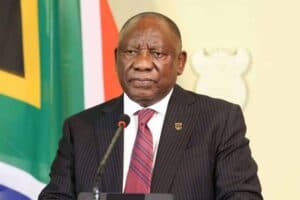The public protector wanted the central bank's mandate to be changed to include citizens' socioeconomic rights.

The High Court in Pretoria has set aside public protector Busisiwe Mkhwebane’s instruction that the constitution should be amended to remove the Reserve Bank’s constitutional mandate to keep inflation in check.
The order by Judge John Murphy follows an urgent application by the SA Reserve Bank, which accused Mkhwebane of acting irrationally, unfairly, well beyond her powers and making a recommendation that was ill-informed, reckless and a threat to the poor.
In a report that dealt with an apartheid-era bailout to a bank later bought by Absa, Mkhwebane ordered the Special Investigating Unit to reopen earlier investigations into the issue with the aim of recovering “misappropriated public funds” from the Reserve Bank.
She also ordered chairperson of the justice and correctional services portfolio committee Dr Mathole Motshekga to take steps to amend the constitution to alter the constitutional mandate of the Reserve Bank.
The Reserve Bank’s urgent application was only to overturn Mkhwebane’s order aimed at amending the constitution to alter the primary objective of the Reserve Bank, but an application to set aside her final report is also pending.
Her instruction that section 224 of the constitution should be amended to change the primary object of the Reserve Bank was met with dismay and consternation, and caused an instant deprivation of the currency by 2.05%. R1.3 billion worth of South African government bonds were sold by non-resident investors, and banking sector shares were negatively affected.
Standard & Poor Global Ratings also warned South Africa’s credit rating could be downgraded further if government were to effect the remedial action, which caused the Rand to depreciate further.
Reserve Bank governor Lesetja Kganyago maintained the remedial action was a “gross overreach” and had to be stopped in its tracks so that certainty and predictability about the Reserve Bank’s role was affirmed. He said the remedial action was binding, and had a serious and detrimental effect on the economy for as long as it remained in place.
Mkhwebane initially opposed the application, but later conceded that her remedial action was unlawful, that only parliament had the power to amend the constitution and that she had no power to dictate to parliament.
The Reserve Bank, however, asked the court to consider the issues in the interest of justice. Speaker of parliament Baleka Mbete and Absa also challenged the constitutionality of the remedial action, as it violated the doctrine of the separation of powers.
Judge Murphy said Mkhwebane’s explanation and begrudging concession of unconstitutionality offered no defence to the charges or illegality, irrationality and procedural unfairness against it.
“It is disconcerting that she seems impervious to the criticism, or otherwise disinclined to address it … There is no way of getting away from the fact that the public protector is the constitutionally appointed custodian of legality and due process in the public administration.
“She risks the charge of hypocrisy and incompetence if she does not hold herself to an equal or higher standard that to which she holds those subject to her writ.
“A dismissive and procedurally unfair approach by the public protector to important matters placed before her by prominent roleplayers in the affairs of state will tarnish her reputation and damage the legitimacy of the office.
“She would do well to reflect more deeply on her conduct of this investigation and the criticism of her by the governor of the Reserve Bank and the speaker of parliament,” the judge said.
ALSO READ:
//






